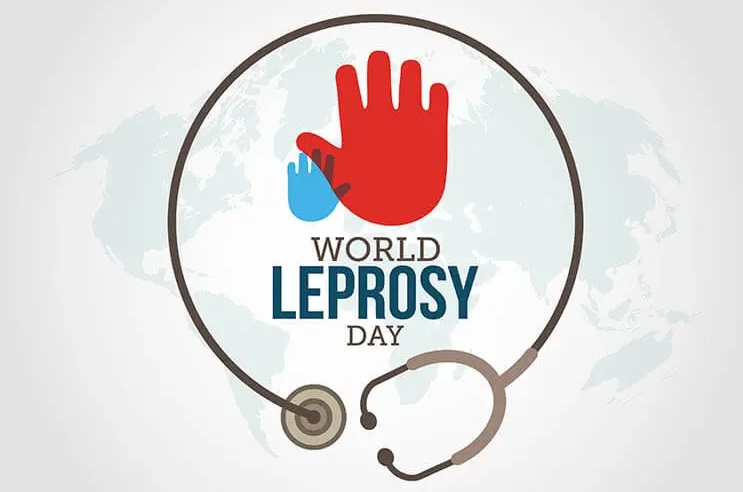January 31 is World Leprosy Rights Day
Lepra - Hansen's disease - is a chronic infectious disease with an indefinitely long incubation period and a diverse clinical presentation, indicating involvement of many organs and systems. The disease is a medical and social problem in many countries. The disease continues to be a serious problem for national health care in 87 countries of the world, where its prevalence exceeds 1:10000 population. More than 2.4 billion people live in these countries, i.e. they are at high risk of leprosy infection. The most affected countries are: South-East Asia, most of the countries of Central and Southern Africa, Latin America. More than 85% of all registered patients live in India, Indonesia, Burma, the Philippines, Nigeria and Brazil.
In Tajikistan, there is a fading focus of leprosy and doctors rarely encounter this pathology, which leads to a decrease in their vigilance with regard to this disease. The development of tourism and increased migration of the population creates the risk of importation of infection from foreign countries, where new cases of this old infection have been registered in recent years. Lepra is called "the great imitator", that is, the disease can run under the mask of a wide range of dermatoses. In this regard, the department of dermatovenerology annually conducts a field cycle to the Hansen Clinic, located in Khanaka village, Hissor district.
To date, there are 21 leprosy patients in Tajikistan, 9 of whom receive antileprosy treatment at the Hansen Clinic, and the remaining 12 patients are on the dispensary register. These patients have various concomitant somatic diseases that aggravate the leprosy process. Comprehensive medical rehabilitation of such conditions as treatment of neuritis, neurotrophic ulcers, prosthetic and orthopedic support, therapeutic, ophthalmologic, neurologic, and dental care is actively carried out for them. 30% of patients have disabling complications of the leprosy process (amyotrophies, contractures, neurotrophic foot ulcers, mutilations, lagophthalmos, decreased visual acuity). Dispensitization of patients is carried out mainly by the staff of antileprosy institutions; in some regions, the dermatovenerological service also takes an active part. It should be noted that persons who have regular contact with leprosy patients are also under dispensary observation.
That is, despite the absence of new cases of leprosy and a decrease in the total number of these patients in the Republic of Tajikistan, the antileprosy service conducts systematic monitoring of both registered and at-risk groups. Concomitant diseases and complications are revealed, further medical tactics and timely chemotherapy are determined.
Head of the department of dermatovenerology
State Educational Institution "Avicenna Tajik State Medical University ".
Doctor of medical sciences, associate professor K.M. Mukhamadieva.
translated Ismoilov R.

